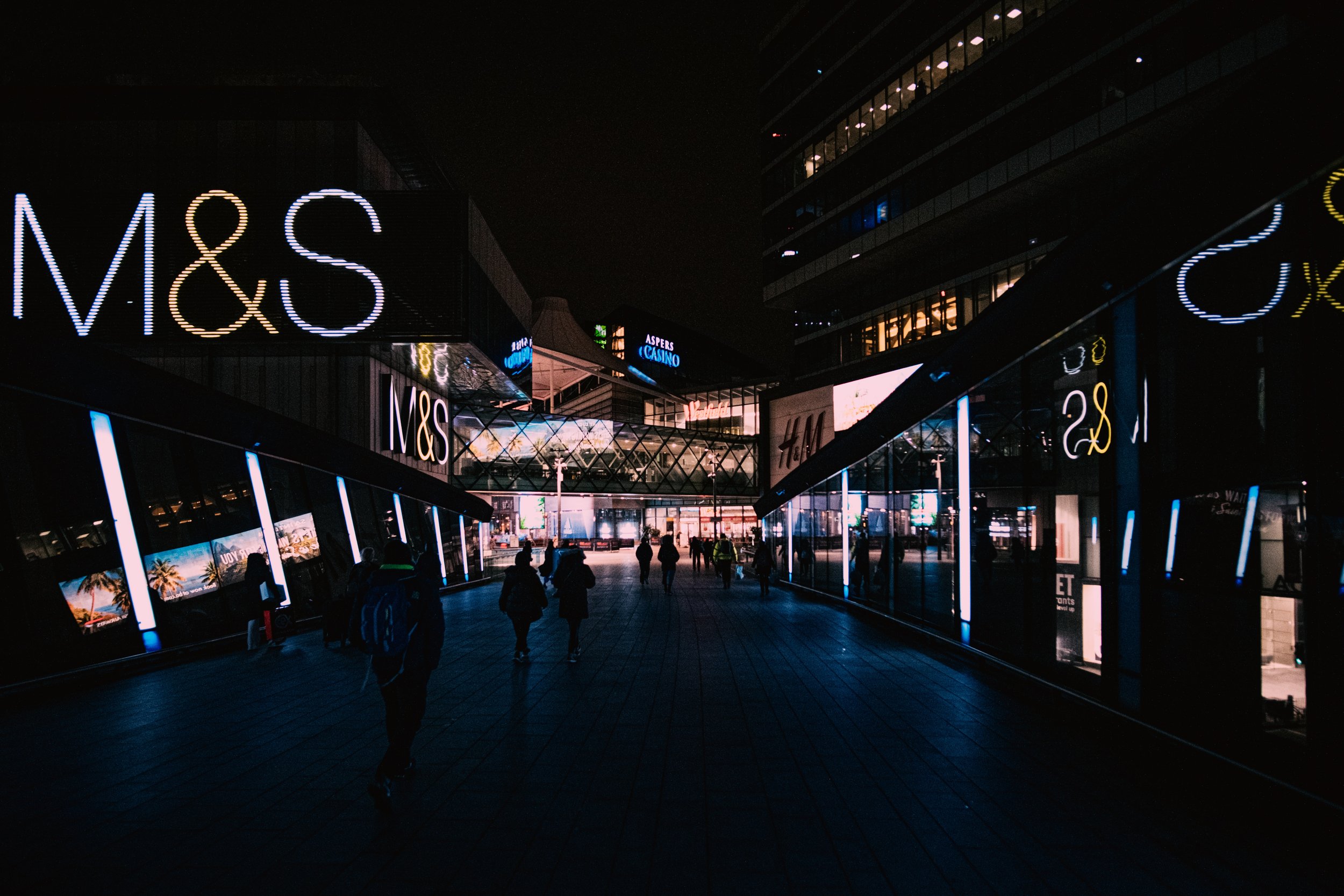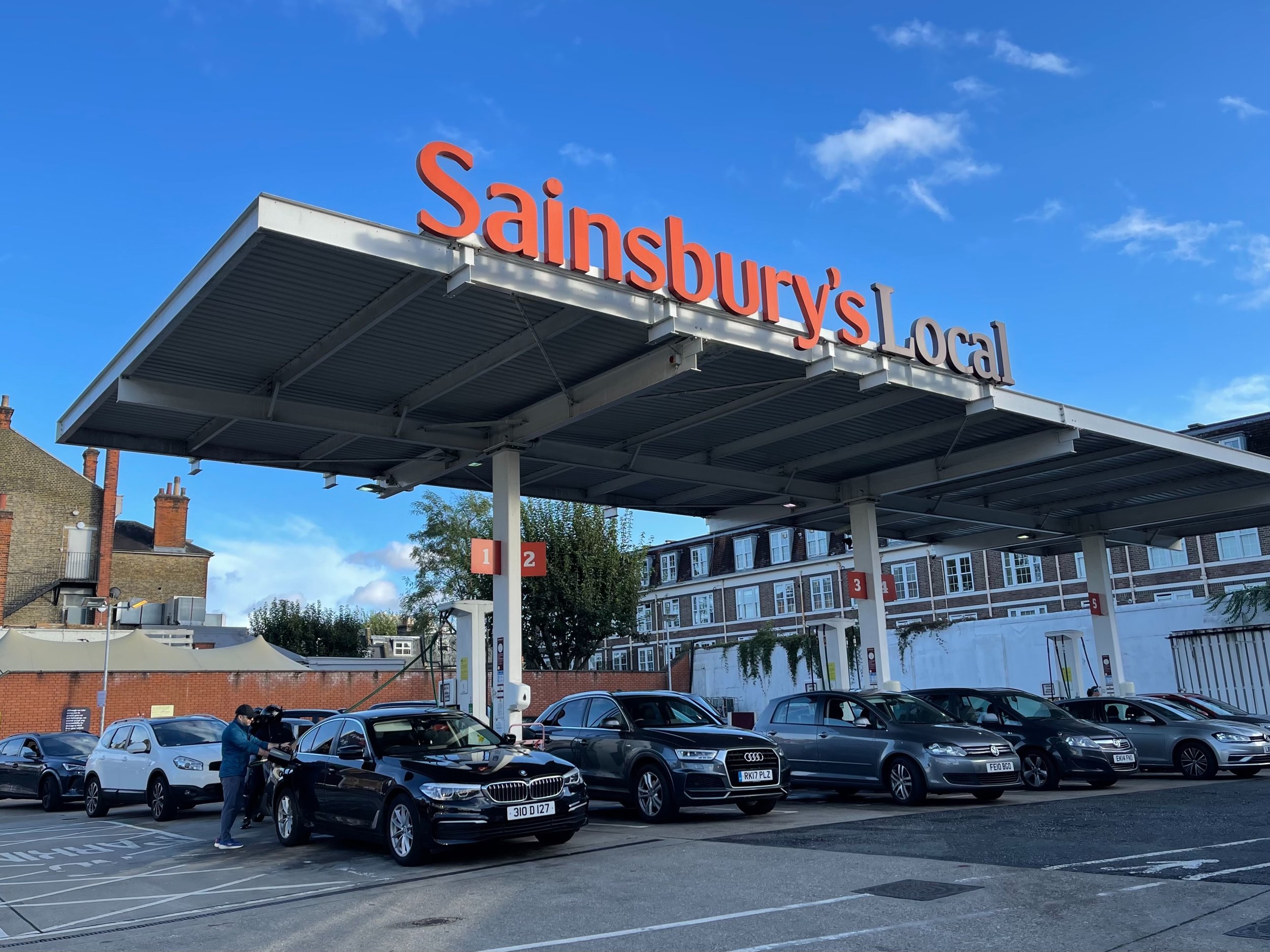M&S, Sainsbury's and John Lewis: Creating the waves of change in sustainable fashion
You might often find yourself thinking of two things when it comes to sustainable fashion: high-end luxury designer brands that use innovative techniques and materials to create sustainable clothing, such as PANGAIA, or East London thrift shops bursting with randomly assorted items, from a label-less multi-coloured sequined dress to a vintage M&S skirt. But now you need to add a third image. Huge household brands, including M&S, are incorporating sustainability into their business model, including their clothing production.
First up is M&S. The retailer has set an ambitious goal of being net zero by 2040 and, to help reach this goal, it has called for the assistance of tech-focused partners. With the support of True, a company that re-imagines business through innovation and investment, M&S are looking for ideas that either “encourage more sustainable behaviours amongst its customers” or help the retailer to “achieve further efficiencies in its agricultural supply chains.” Companies can put themself up for consideration in relation to either of these goals. M&S will then choose the two companies that propose the best solutions and roll out a trial across the company.
““Calling all start-ups, we’re on the hunt for your latest innovation or technology, which will help us reduce our impact on tomorrow’s world”. ”
Let’s not forget Sainsbury’s, another well-loved UK supermarket chain. Since 2019, the company has been conducting a trial charitable second-hand fashion programme in partnership with Newlife, the UK charity that recycles and reuses clothing to support disabled and terminally ill children. Newlife resell the clothes in its stores across the UK and use the funds raised for various reasons: to buy disability equipment, to provide emergency loans to families, to fund their nurse helpline. The trial was a great success. Sainsbury’s has donated 65.5 tonnes of products from its fashion brand Tu Clothing that are not considered fit for resale to Newlife. Not only does the initiative support disabled children across the UK, but it also ensures that no clothing item goes to waste. Now they’re expanding the initiative to cover all of their supermarkets.
““Not only does our partnership support the charity’s vital work in assisting so many children across the UK, but it also helps us to deliver our commitment to support local communities, whilst helping our planet too by protecting resources and reducing waste.” ”
John Lewis has responded specifically to the need for sustainable fashion by launching a new, exclusive brand - Cape Cove - that sells outerwear designed to throw-on when roaming the outdoors. Products include two-piece shorts and hoodie sets, printed dresses, sweaters and trousers, coats and jackets. With the brand’s three commitments set out as caring for the earth, supporting community and raising awareness of mental health, you can see that its beneficent nature extends beyond the natural environment to the humans that occupy it.
Now, when thinking about sustainable fashion, you can have three images in your mind: designer brands, small charity shops and huge nation-wide chains. With these big brands pursuing sustainability at the centre of their business, what’s stopping slightly smaller high-street brands from also making the effort?



